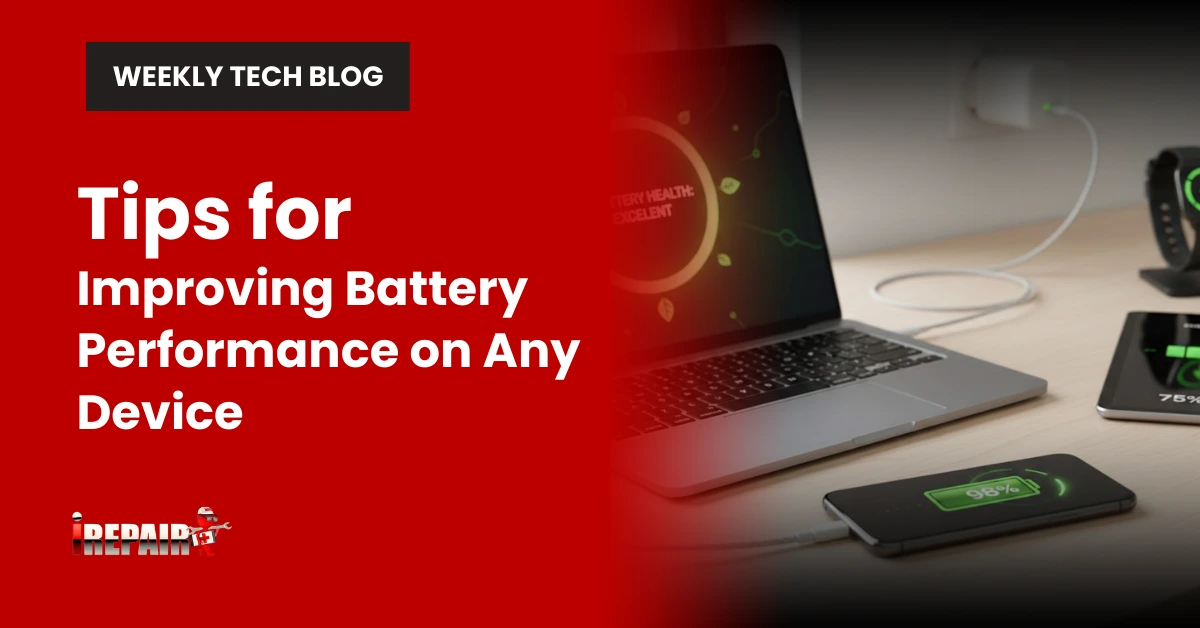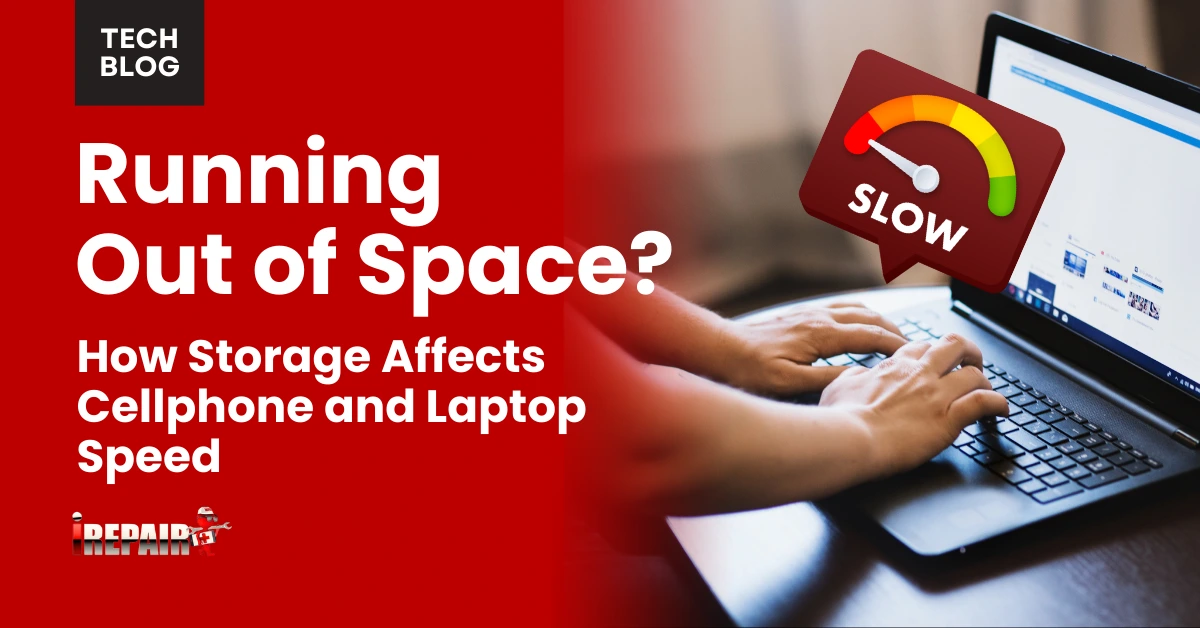Top Reasons for Slow Performance on Samsung Devices
If your Samsung device isn’t as zippy as it should be, there are a few usual suspects. More storage space and accumulated cache are needed to slow everything down. Updating everything is vital, as outdated software can cause your device to lag. Too many apps running in the background can consume resources, leading to sluggishness. Battery management is another key factor; poor optimization can affect your phone’s ability to perform at its best. Finally, malware might be lurking and causing performance issues, so verify your security settings are up-to-date. Explore further to uncover practical solutions to these common issues.
Insufficient Storage Space
Insufficient storage space is one of the most common culprits behind sluggish Samsung device performance. When your device runs low on storage capacity, it struggles to operate efficiently. This lack of space can slow down processes, making even simple tasks feel like a chore. You might not realize it, but your device requires some free space to function smoothly.
To tackle this, efficient cache management is essential. Over time, apps accumulate cache data that can hog precious storage capacity. Regularly clearing your cache can free up space and speed up your device. Remember to keep an eye on fragmentation, too. As files are added and removed, your storage can fragment, leading to longer loading times and delayed responses.
A proactive approach involves regular data backup. By offloading photos, videos, and other large files to a cloud service or external storage, you free up space your device desperately needs. This also guarantees your valuable data is safe and accessible if something goes wrong. By addressing these storage issues, you’ll notice a significant boost in your Samsung device’s performance and overall efficiency.
Outdated Software Updates
Efficient storage management is just one piece of the puzzle regarding enhancing your Samsung device’s performance. Another vital factor is ensuring outdated software updates don’t bog down your device. When your operating system (OS) and firmware aren’t current, your device may face various performance issues. These can manifest as slower response times, app crashes, or severe system errors.
System updates are not just about new features; they’re essential for resolving bugs and optimizing your Samsung device’s operation. Pay attention to these updates to ensure you get all the important improvements to enhance your device’s speed and functionality. If your device’s OS or firmware needs to be updated, it could struggle to keep up with newer apps and features, causing noticeable slowdowns.
To avoid these issues, regularly check for system updates and install them promptly. This practice guarantees your device runs the latest software, providing a smoother and more efficient user experience. So, next time you’re prompted for a system update, don’t hit “Remind Me Later”—take that step to keep your Samsung device performing at its best.
Excessive Background Apps
Many Samsung device users may need to realize the impact of excessive background apps on their performance. When too many apps run simultaneously, they consume precious RAM (Random Access Memory) and create unnecessary background processes. This can lead to system lag, making your device feel sluggish and unresponsive. Each app you open doesn’t just disappear when you switch tasks; it continues to run in the background, quietly eating up resources.
You might think you’re closing apps by hitting the home button, but they’re often still running. This is where app optimization comes in. Samsung devices have built-in features to help manage these background processes and optimize your apps for better performance. Regularly using the task manager to close unused apps can free up RAM and keep your device running smoothly.
However, some apps are more resource-intensive than others, and proper management is necessary for them to slow down your system notably. Being mindful of which apps you allow to run in the background can make a big difference. By managing excessive background apps, you can reduce system lag and enhance your device’s overall performance, ensuring a smoother, more efficient user experience.
Battery Optimization Issues
Why does a battery’s efficiency matter so much in determining your device’s performance? Simply put a well-tuned battery guarantees that your Samsung device runs smoothly and efficiently. When battery optimization is addressed, your device may need help maintaining consistent processor speed, leading to sluggish performance. Without proper optimization, apps take longer to load, and overall functionality feels less responsive.
Samsung devices often feature performance modes that help balance power consumption with processor speed. Enabling these modes can extend battery life while still delivering decent performance. However, if your battery isn’t fine-tuned, these modes might not deliver the expected results. This can lead to faster battery drain and, in extreme cases, overheating, which further hampers your device’s capabilities.
Overheating is a vital issue; it affects battery life and can damage internal components. To avoid this, regularly check your settings and adjust them for best battery use. Simple steps like reducing screen brightness, closing unused apps, and disabling unnecessary features can greatly enhance battery life. Remember, a well-maintained battery is key to keeping your Samsung device running at its best.
Malware and Security Threats
Dealing with malware and security threats is vital for maintaining the performance of your Samsung device. Malware can slow down your device, cause software bugs, and even lead to data breaches. It’s essential to regularly check for any suspicious activity and guarantee your security settings are up-to-date. You should periodically review app permissions and remove any apps you no longer trust or use, as they might be potential entry points for malware.
Security settings play a key role in safeguarding your device. Enable features like Google Play Protect and regularly update your apps and operating system to patch any vulnerabilities. Outdated software can be a haven for bugs and security threats, impacting your device’s speed and responsiveness.
When troubleshooting, running a full device scan with trusted antivirus software can help detect and eliminate malware. Consistent device maintenance, like clearing cache and unnecessary files, also contributes to smoother performance. Remember, practicing safe browsing habits and downloading apps only from reputable sources can greatly reduce the risk of installing malware. By taking these steps, you can guarantee your Samsung device runs efficiently and securely.
Frequently Asked Questions
How Can Overheating Affect My Samsung Device’s Performance?
Overheating can slow down your Samsung device. When it gets too hot, the processor might throttle its speed to cool down, leading to laggy performance. It can also cause apps to crash and reduce battery life, making your device less efficient overall. To help prevent this, avoid running too many apps simultaneously, keep your device out of direct sunlight, and use battery optimization settings to manage heat.
What Role Does Bloatware Play in Slowing Down Devices?
Bloatware can slow down your Samsung device. It often takes up valuable storage space and runs in the background, consuming memory and processing power. You might notice your phone lags or apps open slower because of it. While you can’t always uninstall bloatware, you can disable or limit its background activity to improve performance. Regularly checking and managing these apps can make your device run smoother and more efficiently.
How Do Network Issues Influence Device Speed?
Network issues can slow down your device. When your connection is weak or unstable, apps and services struggle to load, making everything laggy. Slow download and upload speeds mean longer wait times for data-heavy tasks. Plus, a spotty connection can cause apps to repeatedly try reconnecting, draining your battery, and hogging resources. To fix this, ensure your Wi-Fi or mobile data is stable and secure for smoother performance.
What Is the Impact of Fragmentation on Boot Times?
You might notice slower boot times if your device’s storage needs to be more cohesive. Fragmentation scatters data across your storage, causing your device to take longer to locate and load the necessary files during startup. It’s like searching for a misplaced book in a messy library. Managing your storage and defragmenting can help improve boot times, ensuring your device starts up more swiftly and efficiently. Pay attention to storage maintenance!
Why Is UI Responsiveness Important for Overall Performance?
You might not realize it, but UI responsiveness is vital for your overall device performance. When your device’s user interface lags, it affects how quickly you can interact with apps and complete tasks. A responsive UI guarantees smooth navigation and a seamless experience, making everything feel faster. By maintaining good UI performance, you’re improving speed and your satisfaction with the device’s usability and functionality.







